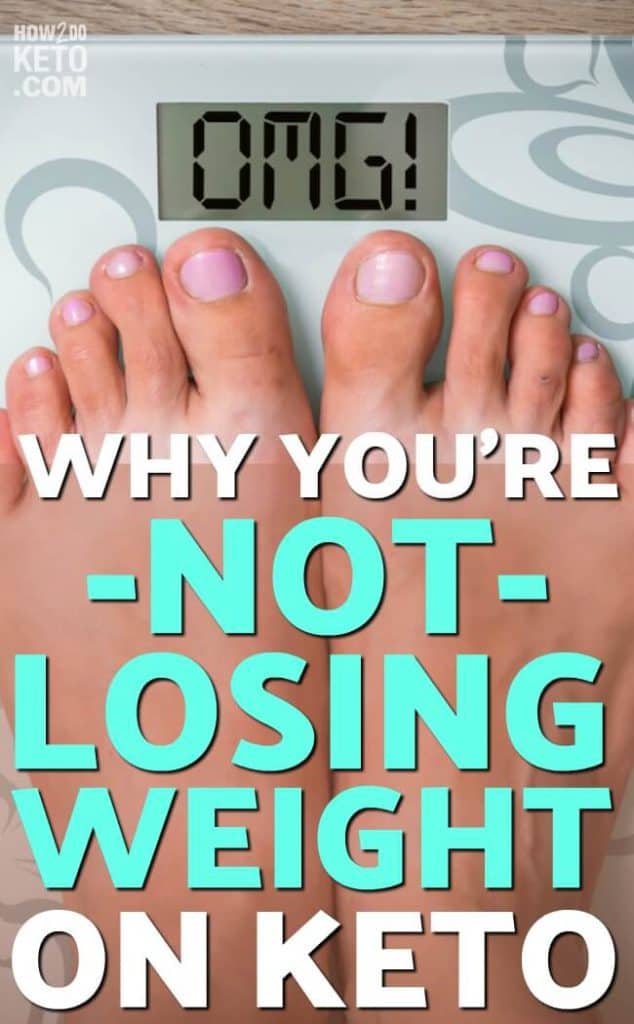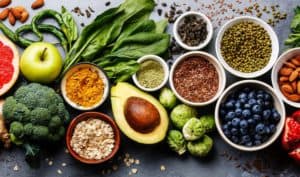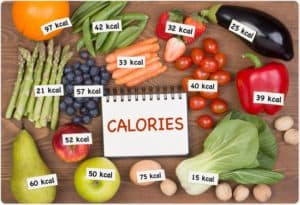Wondering why you aren’t losing any weight on keto? You’ve tried your best to cut down on carbs. You have loaded so much upon bacon, cheese, and avocados, but the scale still isn’t moving!
What is a Keto Diet?
The Keto Diet Plan is a specialized diet that involves a reduced intake of carbohydrates and a moderate intake of proteins and a high proportion of fat consumption and the diet is considered to be an accelerated means of weight loss.
The reduction of carbohydrates puts the body into a metabolic state called ketosis. When this happens, your body becomes incredibly efficient at burning fat for energy. It also turns fat into ketones in the liver, which can supply energy to the brain.
Scientific fact: The Keto diet is proven to be 2.2 – 3 X more effective in helping you healthily lose weight so it is evident that the Keto Diet is not just a healthy diet but a healthy lifestyle too.
How Does The Keto Diet Work?
The keto diet plan is based on the simple principle of depleting the carbohydrates, which are the body’s primary source of energy and enable it to burn fat for fuel instead, thereby maximizing weight loss.
When you consume foods that contain carbohydrates, the body converts those carbohydrates into glucose, or blood sugar, which it then uses for energy. Because glucose is the simplest form of energy for the body to use, it’s always used for energy before your body turns to stored fat for fuel.
On a keto diet, the goal is to reduce carbohydrate intake so that the body starts to break down fat for energy. When this occurs, fat is broken down in the liver, thereby producing ketones, which are by-products of your metabolism. These ketones are then used to fuel the body in the absence of glucose.
When you eat less than 50 grams of carbs a day, your body eventually runs out of fuel (blood sugar) it can use quickly. This typically takes 3 to 4 days. Then you’ll start to break down protein and fat for energy, which can make you lose weight.
This whole process is referred to as the term ketosis, a metabolic state that your body enters while you’re successfully on a keto diet.
The diet can be tough to master if you don’t know the right steps to take to get into ketosis. And once you’re in ketosis, it can be a challenge to stay there.
Here are a few reasons why you’re not losing weight on keto:
#1 You’re Eating Too Many Calories
When trying to lose weight, it’s critical to create a calorie deficit. This can be achieved by either reducing the number of calories that you consume or by expending more calories through increased physical activity.
Because many keto-friendly foods are high in calories, such as avocados, olive oil, full-fat dairy, and nuts, it\’s important not to overdo it. If you switch to a keto diet and don’t watch your calorie intake, you’re unlikely to drop pounds.
On a ketogenic diet, however, it is entirely possible to consume too many calories by eating excessively large portions or snacking on high-calorie foods throughout the day. Because of the filling effects of fat and protein, most people feel more satisfied after eating ketogenic meals and snacks.
Paying attention to portion size, increasing physical activity, and snacking in moderation between meals can help create the calorie deficit needed to lose weight.
#2 You’re Not Actually in Ketosis
Have you been following the ketogenic diet for a while but have no idea if you’re in ketosis? This is where testing your ketone levels comes in.
You’ll only truly know whether you’re in a ketogenic state when you test your ketone levels.
How do you test your ketones? There are three ways to get a good measurement:
- Urine testing
- Breath testing
- Blood testing (the most accurate)
#3 You’re Not Eating Enough Calories
The keto diet might take away your appetite for a while when you first start it. Ketones can help take away hunger initially, but this effect can wear off with time. This can result in your body going into starvation mode if you do not consume enough calories.
This slows down your metabolism and starts to hinder your weight-loss efforts. This lack of appetite should go out within a few weeks, but if you’ve been on the keto diet for a while and you’re still not feeling hungry, it might be time to switch diets or modify your keto.
#4 You Aren’t Eating Nutritious Foods
No matter what diet plan you follow, the key to weight loss lies in consuming nutritious and whole foods. Depending on processed meals too much than required can put a dent in your weight loss even if they’re keto-friendly.
Because of the extra calories they provide, snack bars, keto desserts, and other packaged foods can derail your weight loss efforts. Furthermore, eating too many convenience foods on the run, such as hot dogs and fast food, can stifle weight loss.
These foods are nutrient-deficient, which means they are high in calories but low in vitamins, minerals, and antioxidants. Stick to unprocessed, whole foods to maximize your nutrient intake while losing weight on the keto diet.
#5 You’re Not Eating Satiating Meals
One of the keys to weight loss is eating at a calorie deficit, but it’s also important to pay attention to the quality of the calories you do eat to make sure you’re satisfied. Eating at a calorie deficit doesn’t mean you have to be hungry all the time.
Satiating healthy fats or saturated and monounsaturated fats are the cornerstones In fact, being hungry will make you unhappy, make you less likely to stick to your diet, and make you more likely to give in to cravings. By eating keto-friendly foods, you can eat a calorie deficit while still feeling satisfied with the ketogenic diet. If you want a high-quality keto diet, you’ll need abundant sources of high-quality fats. For example, MCT oil is particularly helpful because it’s more satiating than coconut oil and boosts ketone production, so you can enter fat-burning mode faster.
High-quality proteins are also important. Fatty cuts of meat (like a ribeye steak), as well as wild-caught salmon and other high-fat fish, are excellent at keeping you satisfied.
You don’t need to shy away from protein — it won’t kick you out of ketosis as you may have heard. The belief that too much protein triggers gluconeogenesis and therefore lowers your ketone levels is just a myth.
#6 You’re Still Eating Too Many Carbs
The ratios of the keto diet are super important. Most people should stick to eating no more than 20 to 30 grams of carbs per day. But the thing is that many people might not realize how many carbs are in common foods.
This is why it’s very important to track your daily intake. If you end up eating too many carbs on the keto diet, you may never get into ketosis, which can hinder your weight loss. Veggies, dairy, nuts, and nut butter are on the keto food list, but the grams of carbs can add up fast if you’re not tracking.
On a low-carb diet, both dairy and nuts should be consumed with caution. One common mistake people make on keto is overeating dairy and nuts to feel satisfied, but too much of these foods can increase both your carb intake and calorie count without you realizing it.
Other possible hidden carbs can be found in some cruciferous vegetables including cabbage, cauliflower, broccoli, Brussels sprouts, fennel, and turnips. You also want to limit your intake of fruit due to its high sugar content.
#7 You’re Not Sleeping Enough
Often an underestimated factor, not sleeping enough can stall or prevent weight loss. Lack of sleep can throw off your circadian rhythm and increase the risk of metabolic problems. All of your organs follow a certain timing and disrupting it can put you at a severe disadvantage.
Maximum fat loss can only be achieved with adequate sleep. Sleep is also essential for balancing hormones, especially hunger hormones. Sleep regulates both ghrelin (the hormone that makes you feel hungry) and leptin (the hormone that makes you feel full).
Your ghrelin goes up and your levels of leptin go down when you don’t get enough sleep, which is bad news for weight loss.
Solution To Get That Scale Moving
There are several strategies that may help you lose weight while following a ketogenic diet:
- Track your food intake: Pay close attention to the types and amounts of food you are eating, as well as the total number of calories you are consuming. This can help you stay within your desired calorie range and ensure that you are getting the nutrients you need.
- Incorporate physical activity: Incorporating regular physical activity, such as cardio or strength training, can help boost weight loss and improve overall health.
- Eat high-fiber vegetables: Incorporating non-starchy vegetables, such as leafy greens and cruciferous vegetables, can help increase fiber intake and keep you feeling full and satisfied.
- Drink plenty of water: Staying hydrated can help you feel full and may also help prevent constipation, a common side effect of the keto diet.
- Get enough sleep: Adequate sleep is important for overall health and can also help with weight loss. Aim for 7-9 hours of sleep per night.
- Consider incorporating intermittent fasting: Intermittent fasting, or restricting your eating to specific time periods, may help boost weight loss and improve other health markers.

















